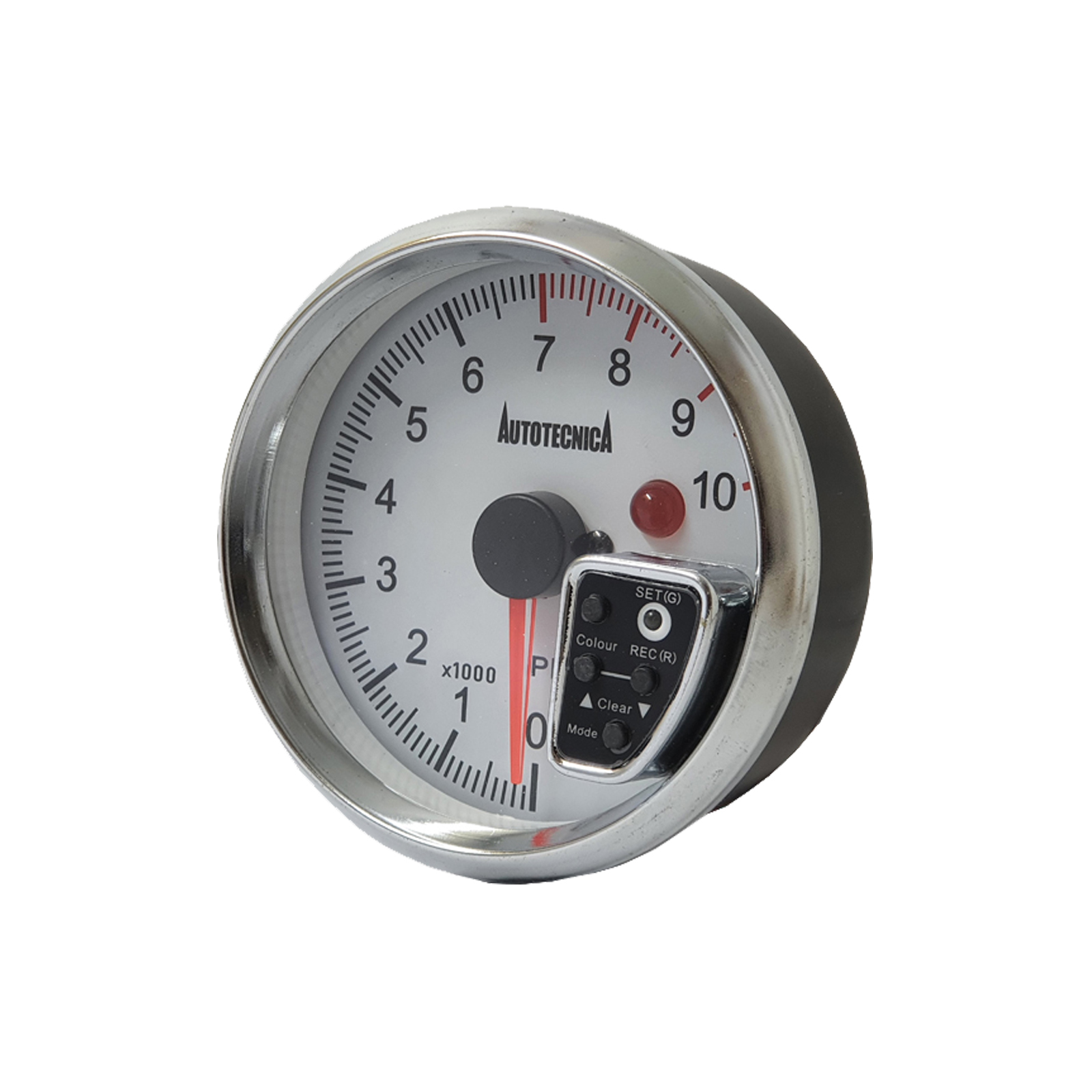Boost Your Driving Experience with a Reliable Tachometer
Boost Your Driving Experience with a Reliable Tachometer
Blog Article
The Relevance of a Tachometer in Keeping Track Of Engine Rate and Performance in Automotive Applications
In the world of automobile design, the tachometer stands as a critical tool in the chauffeur's collection, offering a straight home window into the internal workings of an automobile's engine. Past its function as a plain gauge of transformations per min (RPM), the tachometer acts as a critical tool for lovers and professionals alike, providing real-time understandings into engine performance and health and wellness. Understanding the importance of this tool exceeds surface-level observations, diving right into the intricate connection in between engine rate, power output, and general driving experience. As we discover the complex role of the tachometer in vehicle applications, a much deeper appreciation for its effect on automobile characteristics and efficiency begins to emerge.
Value of Checking Engine RPM
Checking engine RPM, or changes per min, is an essential facet of vehicle maintenance and performance evaluation. Engine RPM directly associates with the speed at which the engine's crankshaft rotates, showing exactly how quickly the engine is running - tachometer. By keeping an eye on RPM, technicians can assess the health of the engine, detect prospective concerns, and fine-tune efficiency. An irregular RPM analysis may signal troubles such as engine misfires, damaged stimulate plugs, or problems with the fuel distribution system. Continually high RPM analyses could indicate hostile driving routines or the need for a greater equipment shift to boost gas efficiency.
In addition, keeping track of engine RPM is necessary for performance assessment in auto racing and high-performance lorries. In summary, keeping an eye on engine RPM is not just vital for discovering concerns but also for enhancing engine efficiency in various automobile applications.

Advantages of Real-Time Information
In automotive applications, real-time data plays an important duty in providing instant insights into the performance and condition of the automobile. By continually checking numerous criteria such as engine rate, temperature level, fuel consumption, and much more, real-time data provides various advantages that add to improved efficiency and safety when driving.
One considerable advantage of real-time information is its capacity to sharp motorists and specialists to any type of anomalies or concerns immediately. This aggressive approach enables quick recognition of possible issues, permitting timely treatments to prevent further damages or failures. In addition, real-time data helps with performance optimization by giving instant feedback on driving habits and engine performance. Motorists can adjust their actions in real-time based upon this information to attain much better fuel economic situation and extend the lifespan of their lorry.

Additionally, real-time information plays an important duty in contemporary auto diagnostics, allowing professionals to rapidly detect and deal with breakdowns. This leads to decreased downtime, reduced maintenance expenses, and inevitably, improved total automobile reliability and durability (tachometer). By using the power of real-time data, automobile stakeholders can make enlightened choices that positively affect both the efficiency and long life of the vehicle
Influence On Equipment Shifts
The tachometer plays a vital function in maximizing gear shifts by offering real-time engine speed data to the chauffeur. When approaching the redline on the tachometer, it signals the driver to upshift to prevent over-revving the engine and causing possible damages.
In addition, the tachometer help in accomplishing smoother gear transitions, particularly in manual transmissions. By monitoring engine rate, motorists can carry out gear shifts at the optimum RPM variety, decreasing jerking activities and decreasing endure the transmission components. This accuracy on duty modifications not only boosts driving convenience however likewise adds to fuel performance.
Enhancing Fuel Efficiency
Offered the important function the tachometer plays in optimizing equipment shifts for efficiency and engine health and wellness, it directly adds to maximizing gas efficiency in auto applications. By supplying real-time feedback on engine rate, the tachometer assists vehicle drivers in preserving the most reliable RPM range for gas economy. When vehicle drivers regularly check the tachometer and change their motoring practices accordingly, they can prevent unneeded fuel intake caused by over-revving or carrying the engine.
Furthermore, the tachometer assists motorists determine the most fuel-efficient equipment to our website be in at any given minute, protecting against the engine from functioning harder than required. In conclusion, the tachometer serves as a useful tool in improving fuel effectiveness by promoting optimal driving practices and identifying areas for improvement in the vehicle's performance.

Maximizing Engine Longevity
The tachometer's function in monitoring engine rate and performance is crucial in guaranteeing the long life of automobile engines. Checking the tachometer enables vehicle drivers to stay within the advised RPM range for their automobile, preventing unneeded pressure on the engine and extending its life expectancy.

Verdict
In verdict, the tachometer plays a crucial role in keeping track of engine rate and efficiency in automotive applications. By supplying real-time data on RPM, it permits for reliable equipment changes, improved gas effectiveness, and taken full advantage of engine longevity. This device is essential for preserving optimal engine performance and making certain the overall capability of a vehicle.
Report this page